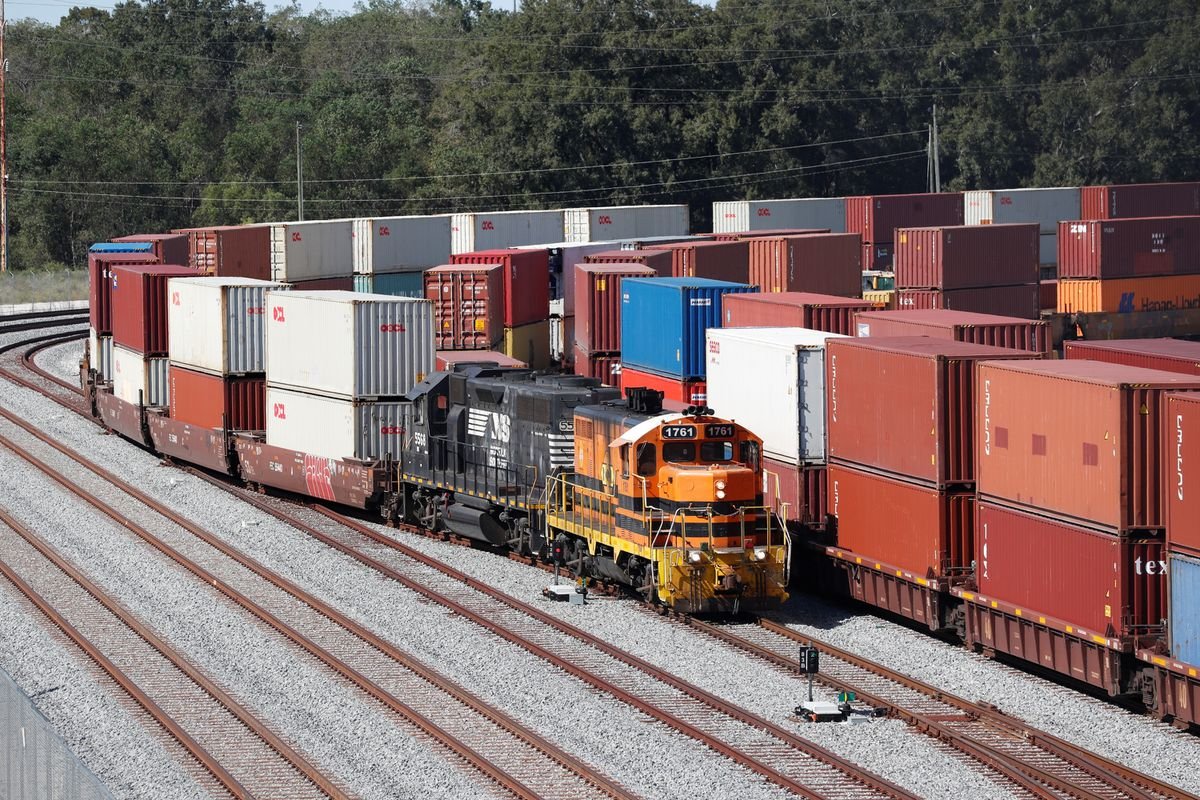President Biden faces deadline in U.S. railroad labor standoff


LOS ANGELES, July 12 (Reuters) – U.S. President Joe Biden faces a deadline next week to intervene in nationwide U.S. railroad labor talks covering 115,000 workers, or open the door to a potential strike or lockout that could threaten an already fragile economy and choke supplies of food and fuel.
The stakes are high for Biden, who wants to tackle inflation-stoking supply-chain woes and is already working to reach a deal in the critical labor talks at West Coast seaports. If the president declines to intercede in the railroad labor negotiations by appointing a Presidential Emergency Board (PEB) before 12:01 a.m. EDT on Monday, the railroads and unions could opt for operational shutdowns or strikes, respectively.
If appointed, the board would make recommendations that could be used as a framework for a voluntary settlement.
A White House official told Reuters the administration “is going through the standard process that has been used in the past when considering a PEB.” The White House declined further comment. Parties in the current talks expect Biden to appoint a board as President Barack Obama did to help resolve a wage and healthcare benefit standoff at the largest freight railroads in 2011.
A White House official told Reuters the administration “is going through the standard process that has been used in the past when considering a PEB.” The White House declined further comment.
Parties in the current talks expect Biden to appoint a board as President Barack Obama did to help resolve a wage and healthcare benefit standoff at the largest freight railroads in 2011.
“People in the executive branch and in Congress know how vital our freight rail system is to our economy,” said Greg Regan, president of the AFL-CIO Transportation Trades Department that represents several railroad unions.
“You’re going to see a similar amount of pressure to reach an agreement that you’re seeing on the port side,” he added.
U.S. business groups representing retailers and food and fuel producers in letters to Biden have warned that failing to appoint a PEB would be “disastrous” for the softening economy. Railroads move everything from Amazon packages to fuel oil and soybeans, and a shutdown of any kind could send prices for necessities higher and upend battered supply chains.
The railroad talks come at a bad time for Biden, whose administration is also dealing with negotiations covering more than 22,000 U.S. West Coast workers at 29 seaports stretching from Washington to California, including the nation’s busiest at Los Angeles/Long Beach. The contract expired on July 1 and the two sides are wrestling over issues ranging from pay to automation. read more
Talks between major freight railroads, including Union Pacific and Berkshire Hathaway (BRKa.N)-owned BNSF, and unions representing their workers have dragged out more than two years. If appointed, the PEB has 30 days to make nonbinding settlement recommendations. Work stoppages are prohibited during that time and for 30 days following the release of the report.





